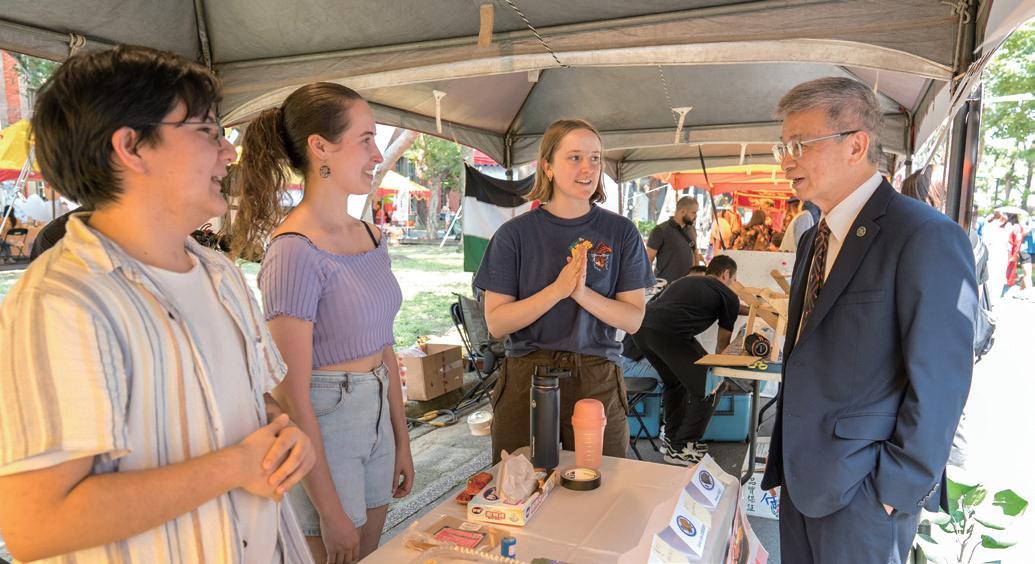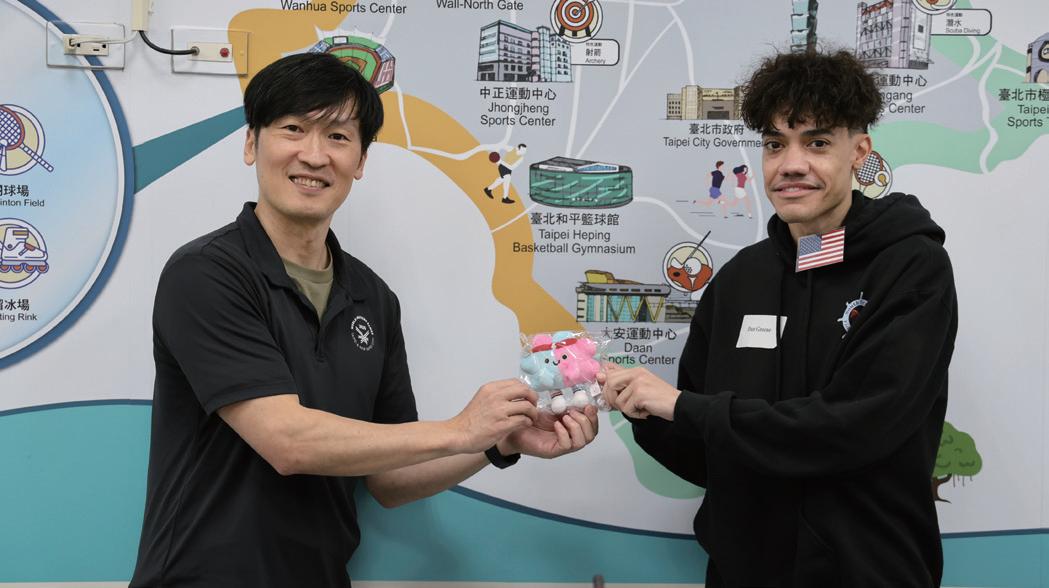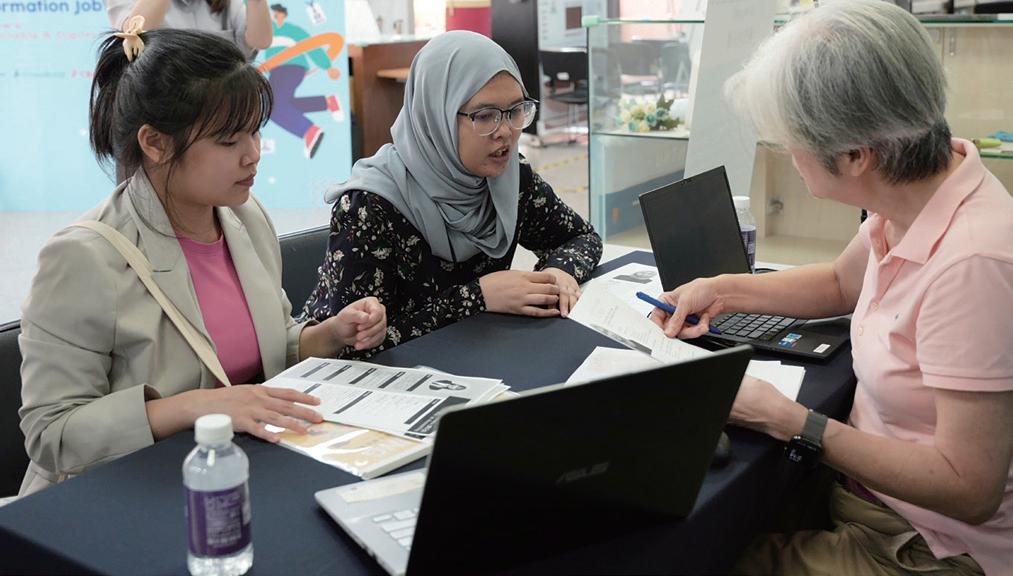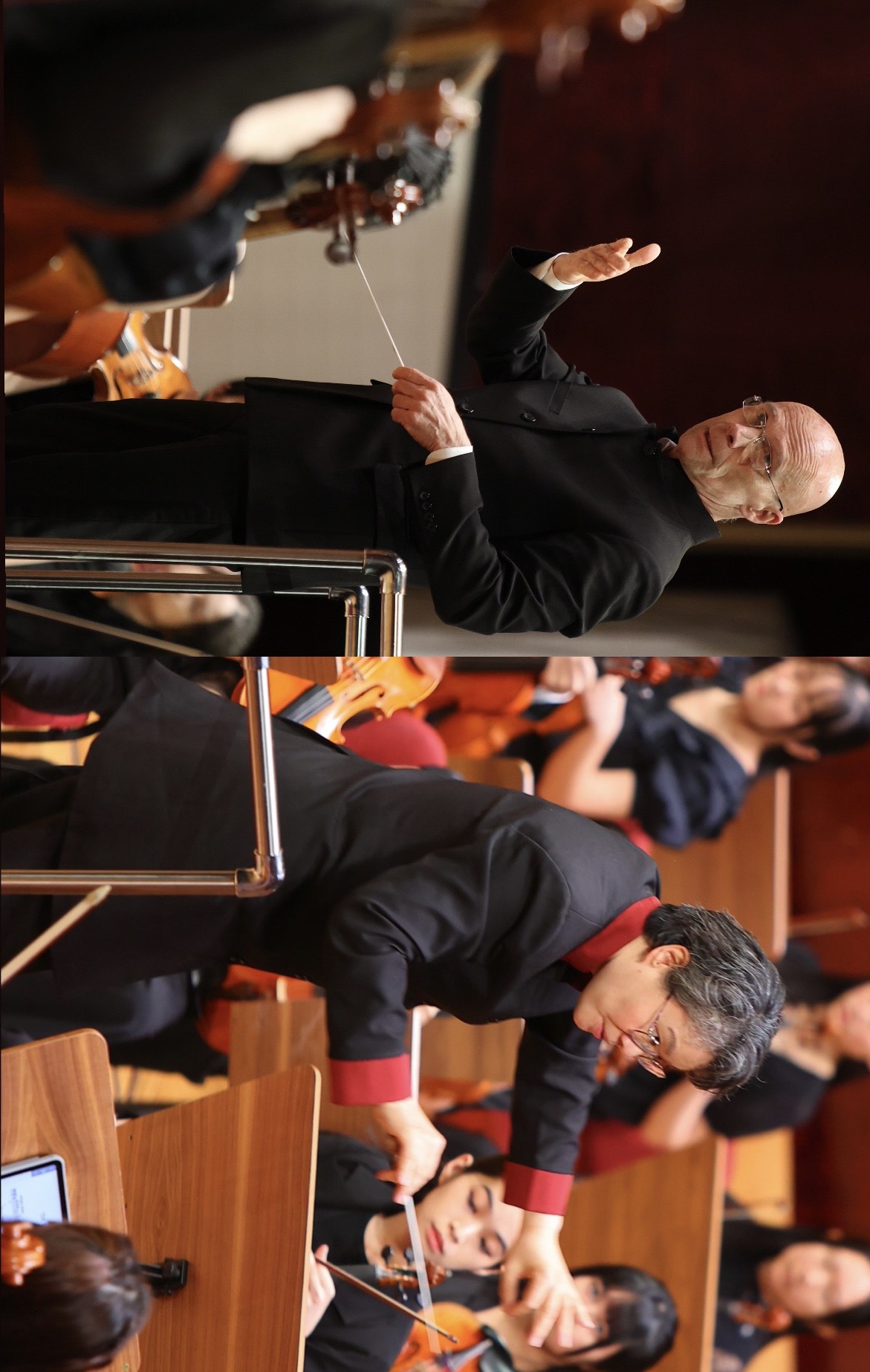
8 minute read
Connecting International Students with Learning, Work, and Community
NTNU expanded its commitment to international students in the 2024–2025 academic year through a diverse set of programs focused on academics, professional growth, cultural engagement, and institutional collaboration.
International degree students now make up 12.05 percent of the university’s total enrollment, the highest among Taiwan’s national universities. This milestone reflects more than growth in numbers, it is a testament to NTNU’s continued effort to create a supportive, inclusive environment for students from around the world.
Broadening Academic Access with EMI and Bilingual Education
Through the Bilingual Benchmark University initiative, NTNU has significantly increased its English-Medium Instruction (EMI) offerings, now totaling more than 880 courses. Fully English-taught degree programs are also available in areas such as education, business administration, global studies, international human resource development, athletic performance, and physics.
NTNU’s fully English-taught degree programs have drawn students from countries including India, Myanmar, Vietnam, Indonesia, Canada, France, Egypt, and Colombia. To further support international students in these programs,
NTNU offers a variety of language services. These include a Mandarin tutoring program jointly managed by the Office of International Affairs, the Office of Academic Affairs, and the General Education Committee, as well as one-on-one Chinese tutoring provided by the International Youth Service Team. The Mandarin Training Center, now in its 70th year, also offers supplementary courses and cultural experiences for students seeking more formal instruction.
As a member of the NTU System, alongside National Taiwan University and National Taiwan University of Science and Technology, NTNU gives students access to a broader academic and social community. Through this partnership, international students can register for courses across campuses, access shared resources, and participate in system-wide events. This year’s collaborative efforts included joint cultural festivals, campus tours, and workshops that strengthened connections among the three universities.
Cultural Engagement Beyond the Classroom
Outside the classroom, NTNU encourages international students to take part in cultural experiences that build meaningful connections with local communities. This spring, the “Let’s Flip! Changing Places, Sharing Cultures” program brought 64 international students into 34 NTNU classes as guest presenters. More than 600 local students took part in lively sessions that included open discussions, interactive games, and themed workshops on education systems and cultural traditions.
Students also traveled to different parts of Taiwan. In Dulan, Taitung, they learned about Indigenous heritage through community visits and storytelling workshops. In Pinglin, they worked alongside tea farmers and visited ecofriendly tea producers. In May, trips to Taiwan Blue Magpie Tea and Arovia Studio introduced students to circular design through a creative project using sediment from local reservoirs to make scent diffusers.
Cristina, a Romanian graduate student from the Department of Taiwanese Culture, Languages, and Literature, said the experience made her realize that sustainability was not just paying lip-service to buzzwords. “These are concrete practices that engage our senses of smell, taste, and touch that the companies have transformed into business innovations.”
On campus, students participated in a variety of cultural activities. These included a textile dyeing workshop exploring Taiwan’s artisan heritage, a winter tangyuan flash mob to mark the Dongzhi Winter Solstice Festival, and seasonal events such as a Mid-Autumn Moonlight Tea Party and a brush-making and calligraphy class. Students also engaged in hands-on heritage activities focused on Qingming Festival customs, a ghost festival scavenger hunt, and presentations on Peinan Indigenous arts and traditional Taiwanese snacks.


A Global Gathering: International Cultural Festival
One of the most anticipated events of the year was the International Cultural Festival, where students from NTNU’s partner institutions, including Purdue University and the University of Texas at Austin, joined NTNU students in sharing their cultures. Representatives from 16 countries created booths featuring traditional foods, crafts, and clothing, turning the campus into a vibrant cultural exchange hub.
This year’s theme, “Forest Symphony,” represented the university as a diverse and interconnected environment. During the opening ceremony, NTNU President ChengChih Wu welcomed diplomats and cultural officials from 12 countries, including Belgium, Mexico, Hungary, the United Kingdom, and the Czech Republic, affirming the university’s international standing.
“This festival is more than a celebration,” President Wu said. “It’s a chance to see the world through others’ eyes, to share meals and stories, and to grow in understanding.”
Visiting dignitaries echoed this sentiment. Cédric Schampers of the Belgian Office in Taipei spoke on the importance of curiosity and connection. Susan Milner of the British Council praised NTNU’s role in global education. In a symbolic gesture of exchange, Martin Torres Gutierrez Rubio from the Mexican Trade Office wore an NTNU tie, following President Wu’s earlier appearance in a UT Austin tie.
Student performances gave the event a personal touch. The Vietnamese Student Association performed a dance inspired by the folk song “Au Lac,” and the Indonesian


Student Association presented Voices of the Archipelago, a musical piece blending instruments from across the islands.
Food played a central role as well, with dishes such as Burmese fish noodle soup and Mongolian dumplings sparking conversations and shared experiences.
“NTNU is the world, and the world is NTNU,” said student emcees Yu-Ting Ma and Njål Armin Kaland Homeyer. “This campus welcomes everyone who wants to grow, learn, and connect.”
The International Cultural Festival is organized by student volunteers from the International Youth Service Team, under the Office of International Affairs, who play a key role in welcoming and integrating international students into NTNU life. Comprised of 40 to 50 local students, the team supports a range of events including welcome parties, campus tours, and seasonal celebrations like Halloween or Christmas events. They also provide one-on-one Chinese tutoring, helping students navigate both language learning and daily life in Taiwan with greater confidence. Through these efforts, the team helps ensure that international students feel supported, connected, and at home in the NTNU community.
Preparing Students for the Workplace
NTNU also focused on career development through its Stay in Taiwan initiative, working with the Ministry of Labor and the National Immigration Agency to organize workshops on employment opportunities, job-hunting strategies, and immigration policies. These sessions were offered in both English and Mandarin to ensure accessibility.
Students visited local companies, including a trip to Dajia Biotech, where they toured facilities and received résumé consultations from staff. NTNU also collaborated with companies such as Delta Electronics, RealTek, LeadTek,


Turing Drive and FamilyMart to introduce students to sectors including smart manufacturing, AI, and retail.
The year’s signature career event was the “Shaping Tomorrow: The Dual Transformation Job Fair,” hosted by the Office of International Affairs. More than 150 students from over 30 countries met with recruiters from 12 companies for interviews, consultations, and networking. Employers included Unity Sustainability Services, Veda International Group, Blue Orcas Cargo Express, Lion Travel, iKala Interactive Media, Plus Pay, and LOTES Co. Ltd.
“NTNU students bring cultural awareness and adaptability—traits that are hard to teach but essential in today’s workforce,” said Steven Cheng-Chang Tsai, CEO of Unity Sustainability Services.
Vice President for International Affairs Yi-De Liu noted the importance of building these bridges between education and employment: “These programs help students see what’s possible in Taiwan’s job market, while also helping companies recognize the value of international talent.”
Looking Ahead
NTNU’s strategy for international engagement rests on clear goals: creating access, supporting success, and maintaining continuity. By connecting academic study with cultural experiences and career development, the university is building an environment where international students can truly thrive.
“We’re not just trying to attract students,” Liu said. “We want to make sure they succeed—in their studies, their careers, and their lives.”
As the university moves forward, that mission remains at the heart of its work: supporting a new generation of global learners in building futures here in Taiwan.








